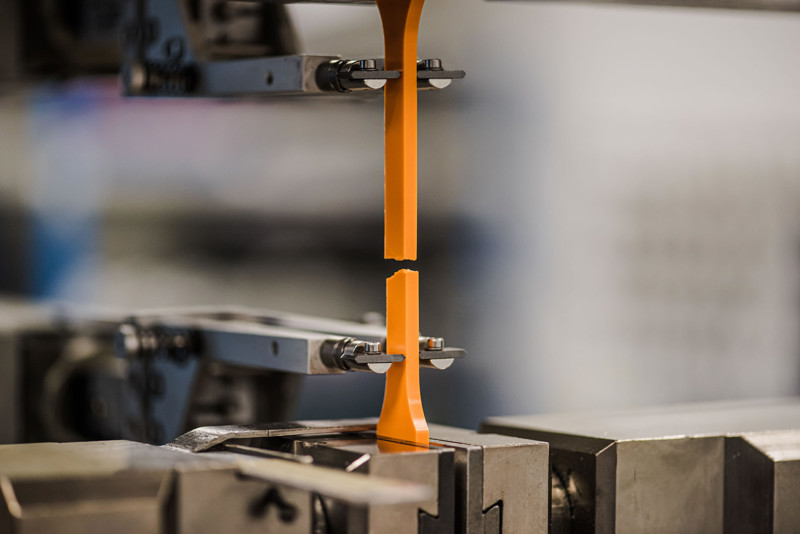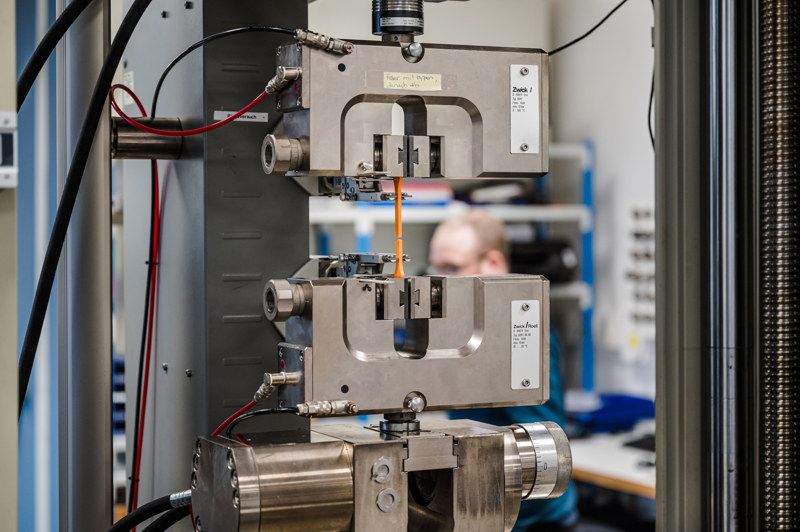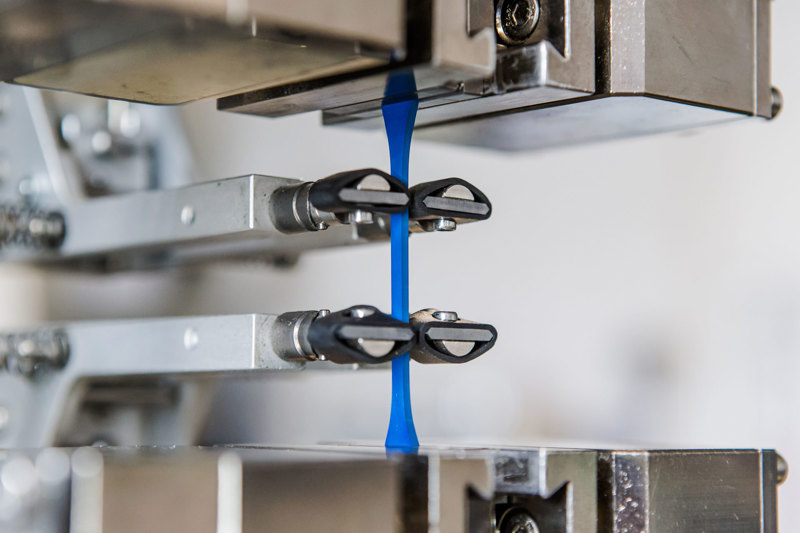International Standards Tensile Test:
Elastomers
ASTM D 412 - DIN 53 504 - ISO 37 - JIS K 6251 - VDA 671 002 - a.o.
Plastics
ASTM D 638 - DIN EN ISO 527-1 - DIN EN ISO 527-2 - ISO 527-1 - ISO 527-2 - a.o.
For tensile testing, 3 universal testing machines with load cells in different force ranges are available in our laboratory. We use high-precision clip-on extensometer with the highest resolution, which meet the accuracy class 0.5 (ISO 9513). This enables us to precisely test elastomers, thermoplastic elastomers as well as fiber-reinforced plastics of high strength. Our temperature chamber also allows us to perform tensile tests in a temperature range from -30°C to +150°C in a force range up to 10 kN.
The tensile test on elastomers, thermoplastic elastomers or plastics is an experimental method for determining the mechanical properties of these materials. In this test, a specimen with a defined geometry is clamped in a universal testing machine and stretched in a controlled manner at a constant speed in the longitudinal direction. During the elongation, force and change in length (extension) are measured to determine the stress-strain curve.
This curve can be used to determine parameters such as tensile strength, elongation at break and stress values for elastomers and thermoplastic elastomers at a defined arbitrary elongation. For plastics, parameters such as modulus of elasticity, yield stress, elongation at yield, tensile strength, stress at break and elongation at break can be read off.
The results obtained from the tensile test are material characteristic values and are therefore relevant in the fields of quality assurance, design and calculation, among others.



